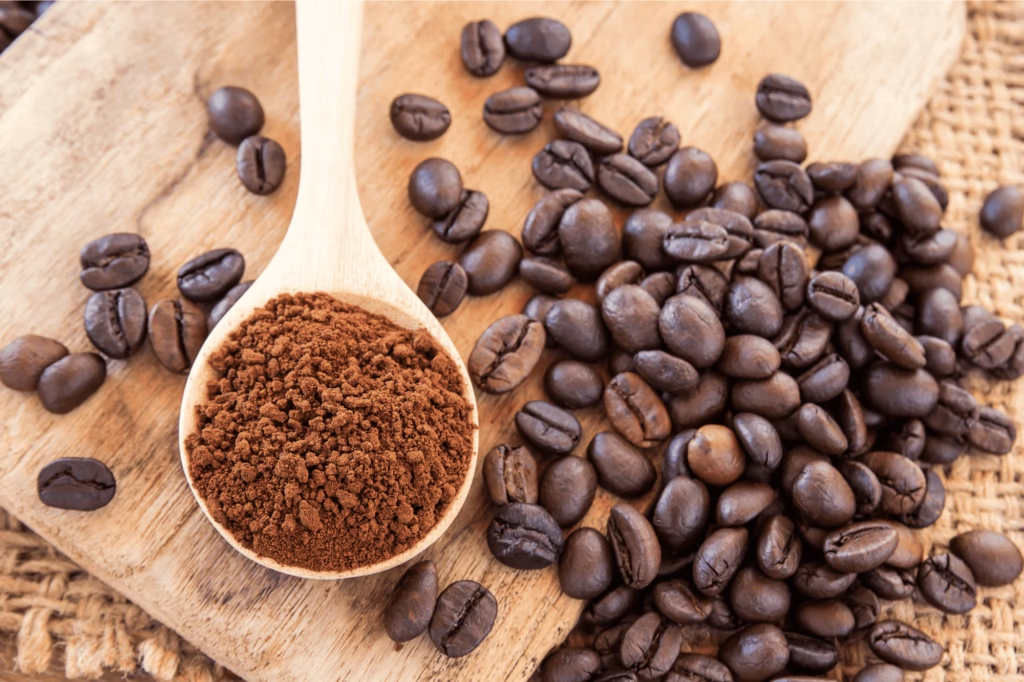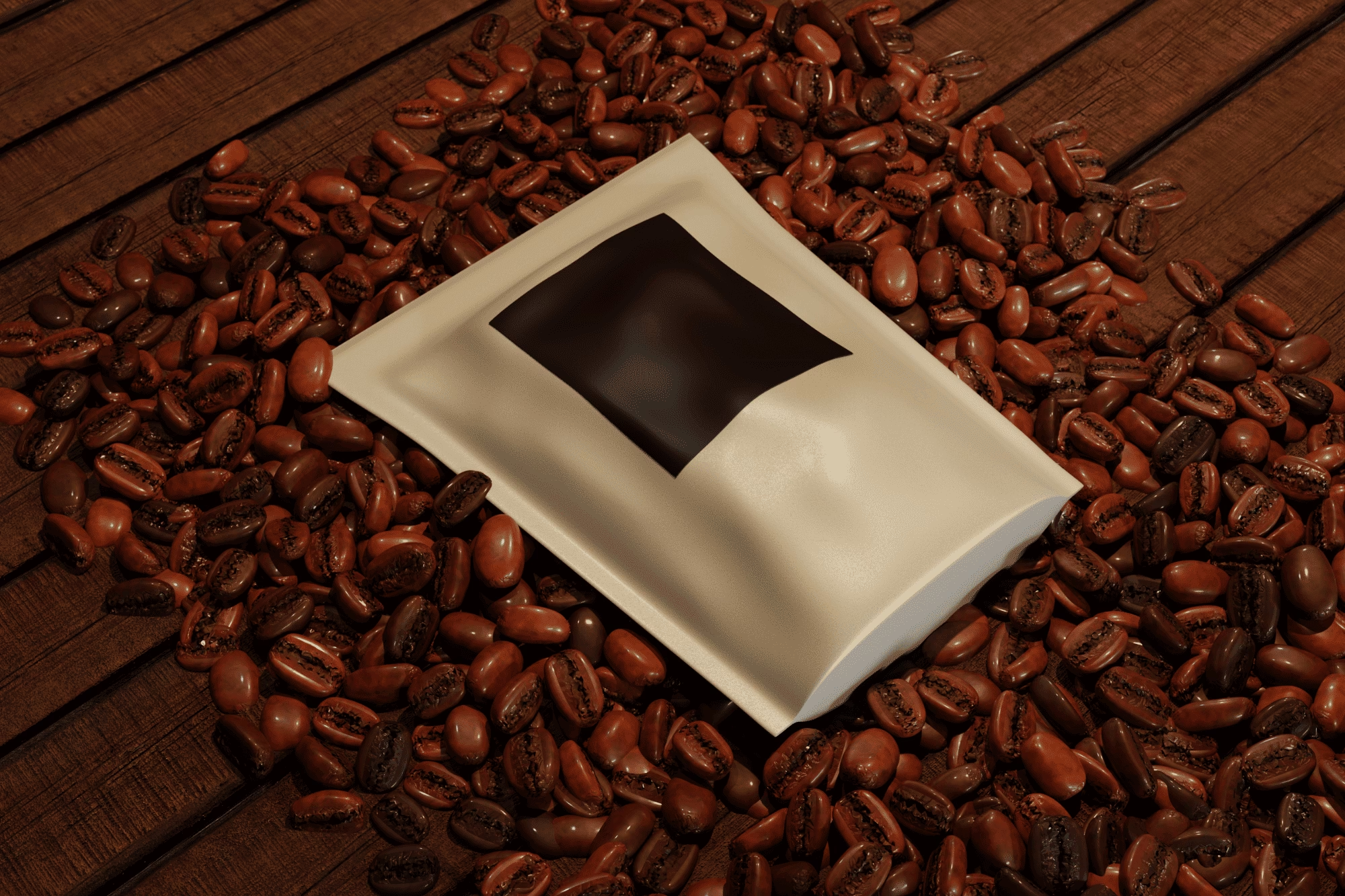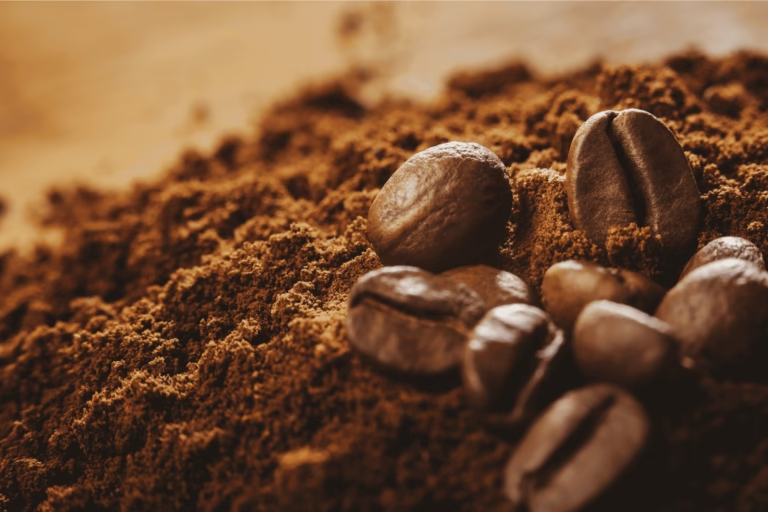Have you ever taken a sip of coffee and been pleasantly surprised by hints of blueberry, citrus, or even tropical fruit dancing across your palate? That unexpected burst of fruity brightness isn’t just delicious it’s opening the door to a whole new dimension of coffee appreciation that many casual drinkers never experience.
Welcome to the vibrant world of fruity coffee beans, where your morning cup transforms from a caffeine delivery system into a complex, nuanced flavor journey. Whether you’re a seasoned coffee enthusiast or someone looking to elevate their daily brew, understanding coffee beans with fruity notes can dramatically enhance your coffee experience.
In this comprehensive guide, we’ll explore the most extraordinary fruity coffee beans from around the world, decode the science behind these captivating flavors, and share expert brewing techniques to bring these delicate notes to life in your cup. From Ethiopian Yirgacheffe’s legendary blueberry bomb to the bright citrus acidity of Kenyan beans, we’re about to embark on a flavor adventure that will forever change how you think about coffee.
So grab your favorite mug and prepare your taste buds by the end of this post, you’ll be ready to discover new favorites and brew them to perfection at home.
Table of Contents
What Gives Coffee Beans a Fruity Flavor?

Before diving into specific recommendations, let’s unpack what actually creates those delightful fruit-forward flavors in your cup.
Contrary to what many believe, fruity coffees aren’t artificially flavored. These delicious notes are completely natural, originating from factors including:
- Origin: The geographic region and specific growing conditions
- Variety: The genetic makeup of the coffee plant
- Processing Method: How the coffee cherry is treated after harvesting
- Altitude: Higher-grown coffees often develop more complex fruit notes
- Soil Composition: Mineral content affects flavor development
- Roast Profile: How the beans are roasted to highlight their natural characteristics
The most significant influence comes from processing methods. Natural (dry) processing, where coffee cherries are dried with the fruit intact around the seed, often produces the most intensely fruity profiles. The sugars from the fruit impart those berry, tropical, and wine-like characteristics that make these coffees so distinctive.
As Alexander Mills from Wild Kaffee explains, “When coffee cherries dry with the fruit surrounding the beans, natural fermentation occurs, creating complex flavor compounds that translate to fruitiness in your cup.”
Which Roast Level Is Best for Preserving Fruity Notes?
If you’re chasing those vibrant fruit flavors, lighter roasts are generally your best friend. Here’s why:
Light roasts preserve the delicate organic compounds responsible for fruity notes, which can be diminished or transformed during extended roasting. When beans are roasted darker, the caramelization process creates those roasty, chocolatey flavors that, while delicious, often mask the original fruit characteristics.
That said, there’s a sweet spot that many roasters aim for just light enough to preserve the bean’s intrinsic flavors but developed enough to reduce excessive acidity or “green” tastes that can come with under-roasted beans.
Some coffees, particularly those from Ethiopia processed using the natural method, can maintain their fruity character even into a medium roast, offering a wonderful balance of sweetness, body, and fruit.
Insert image of different roast levels of the same bean, from light to dark, showing the color progression
The Best Coffee Beans with Fruity Notes
Let’s explore the most exceptional fruity coffee beans available today, broken down by region and flavor profile:
Ethiopian Gems: The Birthplace of Fruity Complexity
Ethiopia, coffee’s ancestral homeland, produces some of the most distinctively fruity coffees in the world. These beans often showcase notes of:
- Blueberry and blackberry
- Stone fruits like peach and apricot
- Floral honey
- Bergamot and jasmine
Top Picks:
- Yirgacheffe Natural Process: Expect vibrant berry notes, often likened to blueberry jam, alongside delicate florals
- Sidamo Region Beans: These tend to offer stone fruit characteristics with a wine-like complexity
- Guji Natural Process: Look for intense strawberry notes with a syrupy body
“Ethiopian Yirgacheffe is often considered the crown jewel for those seeking pronounced fruit-forward flavors, particularly when naturally processed.”
Kenyan Brightness: Bold Fruit Acidity
Kenyan coffees deliver a distinct, wine-like acidity paired with pronounced fruit notes:
- Black currant and blackberry
- Cranberry and redcurrant
- Tomato-like brightness
- Grapefruit and lemon
Top Picks:
- Kenya AA Grade: These larger beans often develop more complex flavor profiles
- Nyeri Region Coffees: Known for vibrant blackcurrant notes with a juicy finish
- SL28 and SL34 Varieties: These specific varietals are prized for their complex fruit acidity
Central American Delicacy: Balanced Fruit Notes
While Central American coffees aren’t typically known for intense fruitiness, certain regions produce beans with lovely subtle fruit characteristics:
- Orange and tangerine
- Red apple and pear
- Stone fruit with honey sweetness
- Cherry with chocolate undertones
Top Picks:
- Panamanian Gesha: Perhaps the most fruit-forward Central American coffee, with jasmine, peach, and bergamot notes
- Costa Rican Honey Process: The controlled fermentation brings out apple and citrus notes
- Guatemalan Huehuetenango: Look for cherry notes with a chocolate-like body
“While African coffees dominate the fruity category, exceptional Central American beans, particularly when honey or naturally processed, can deliver wonderful subtle fruit notes balanced with chocolate sweetness.”
Table: Best Fruity Coffee Beans by Flavor Profile
| Flavor Profile | Best Regions | Processing Method | Recommended Brewing |
|---|---|---|---|
| Berry-forward | Ethiopia, Kenya | Natural | Pour-over, AeroPress |
| Citrus & Bright | Kenya, Colombia | Washed | Pour-over, Espresso |
| Stone Fruit | Ethiopia, Panama | Natural, Honey | AeroPress, V60 |
| Tropical | Costa Rica, Ethiopia | Natural, Honey | French Press, Cold Brew |
| Wine-like | Kenya, Ethiopia | Natural, Washed | Chemex, V60 |
Best Ethiopian Coffee Beans with Fruity Notes
Ethiopia deserves its own dedicated section as it produces the most reliably fruit-forward coffees in the world. Here are some standout Ethiopian regions and why they excel:
Yirgacheffe
This highland region produces coffees with:
- Intense blueberry and blackberry notes in natural process beans
- Delicate lemon, bergamot, and jasmine in washed process beans
- A tea-like body with brilliant clarity
Sidamo
Known for:
- Stone fruit characteristics like peach and apricot
- Honey-like sweetness
- Medium body with elegant acidity
Guji
This relative newcomer to the specialty coffee scene offers:
- Pronounced strawberry notes in natural process beans
- Floral complexity with jasmine and honeysuckle
- Clean, bright cups with excellent sweetness
I recently tried a Guji natural that literally made me pause mid-sip – it was like drinking liquid strawberry jam but with coffee’s beautiful complexity. This is the transformative experience that great Ethiopian beans can deliver.
Insert image of Ethiopian coffee farm or traditional Ethiopian coffee ceremony
Top Fruity Coffee Beans for Pour-Over
Pour-over brewing can highlight the nuanced fruit notes in coffee like no other method. Here are my top recommendations specifically for pour-over brewing:
- Ethiopian Yirgacheffe from reputable specialty roasters: The controlled extraction of pour-over brings out the delicate florals while maintaining the pronounced berry notes
- Kenyan beans from Nyeri or Kirinyaga regions: Pour-over tames the intense acidity while highlighting the blackcurrant and berry characteristics
- Panama Gesha: Though pricey, this coffee offers an unparalleled experience when brewed as pour-over, with jasmine, bergamot, and mango notes
- Naturally processed Costa Rican beans: Pour-over helps separate the fruit complexity from the heavier body
“For pour-over brewing of fruity coffees, aim for a medium-fine grind and slightly higher brew temperature to fully extract those complex fruit compounds without introducing bitterness.”
Light Roast Coffee with Fruity Flavors
Light roasts excel at preserving those delicate fruit compounds. Here are some exceptional light roast options:
- Ethiopian Yirgacheffe Natural: The classic choice for pronounced berry notes
- Kenya Nyeri: For those who enjoy vibrant, wine-like acidity with blackcurrant notes
- Colombia Huila Natural Process: Offers tropical fruit notes with a balanced sweetness
- Rwanda Fully Washed: Delivers red berry notes with excellent clarity
- Panama Gesha: The ultimate light roast experience with floral and tropical fruit notes
When brewing light roasts, consider:
- Using slightly hotter water (205-208°F) to ensure proper extraction
- Extending brew time slightly compared to darker roasts
- Experimenting with finer grinds than you might typically use
“Light roast fruity coffees benefit from precision brewing with consistent temperature and extraction to fully unlock their complex flavor potential.”
Best Specialty Coffee with Fruit Undertones
The specialty coffee market offers some outstanding options with fruit undertones. These picks aren’t just fruity – they offer complex cups with fruit as part of a broader flavor profile:
- Ethiopian Sidamo Natural: Blueberry notes balanced with chocolate and caramel undertones
- Kenyan SL28 Variety: Black currant acidity with a molasses sweetness
- Guatemala Antigua Honey Process: Cherry notes balanced with chocolate and almond
- Costa Rica Tarrazu Natural: Orange and mango notes with caramel sweetness
“The best specialty coffees with fruit undertones offer complexity rather than one-dimensional fruitiness look for beans that balance their fruit notes with appropriate sweetness and body.”
Single-Origin Coffee Beans with Fruity Notes
Single-origin coffees excel at showcasing the unique characteristics of a specific region. For pronounced fruit notes, consider these options:
- Ethiopia Guji Natural: For intense strawberry notes with jasmine
- Kenya Nyeri: For blackcurrant and grapefruit brightness
- Panama Boquete: For floral notes with citrus and tropical fruit
- Rwanda Nyamasheke: For red berry and orange with sparkling acidity
The beauty of single-origin coffees is their expression of terroir – that unique combination of soil, climate, altitude, and processing that creates distinctive flavor profiles impossible to replicate elsewhere.
“Single-origin coffees allow you to taste the pure expression of a region’s unique terroir, particularly important when exploring fruity flavor characteristics.”
Citrusy and Fruity Coffee Beans for Espresso
While fruity coffees can sometimes be challenging for espresso due to their acidity, these options work beautifully:
- Ethiopian Yirgacheffe Washed: Offers lemon and bergamot notes that shine through milk
- Kenya AA Washed: Provides blackcurrant notes that create a complex espresso
- Colombia Huila Natural: Delivers orange and red fruit notes with enough body for espresso
- Brazilian Natural Process: Offers milder fruit notes with chocolate, perfect for milk drinks
When using fruity beans for espresso:
- Consider a slightly darker roast than you would for filter coffee
- Adjust to a slightly lower brew temperature (198-201°F)
- Try a slightly shorter extraction ratio (1:1.5 – 1:2) to concentrate the sweetness
“For espresso with fruity beans, a shorter extraction often helps balance the acidity while maintaining the distinctive fruit notes.”
Best African Coffee Beans with Berry Flavors
African coffees dominate when it comes to berry-forward flavor profiles:
- Ethiopian Yirgacheffe Natural: The quintessential blueberry bomb
- Ethiopian Guji Natural: For pronounced strawberry notes
- Kenyan Nyeri: For blackcurrant and cranberry brightness
- Rwandan Natural Process: For red berry notes with wine-like complexity
What makes African coffees particularly berry-forward? It’s a combination of:
- Indigenous heirloom varieties with unique genetic profiles
- High growing altitudes that slow cherry development
- Traditional processing methods that enhance fruit characteristics
- Soil compositions rich in volcanic minerals
According to Corner Coffee Store, “The combination of heirloom varieties, high altitude, and traditional processing makes African coffees uniquely suited to developing intense berry characteristics.”
How Should I Brew Fruity Coffee Beans for the Best Taste?
Different brewing methods can highlight or subdue fruity notes. Here’s how to get the most from your beans:
Pour-Over (V60, Chemex, Kalita Wave)
- Why it works: Clean, bright cup that showcases clarity and nuance
- Best for: Highlighting delicate floral and citrus notes
- Technique tips:
- Medium-fine grind
- Water just off boil (205-208°F)
- 1:16 coffee to water ratio
- Slow, controlled pour
AeroPress
- Why it works: Versatile method that can emphasize sweetness while controlling acidity
- Best for: Balancing intense fruit notes with body
- Technique tips:
- Medium grind
- Slightly lower temperature (200-205°F)
- Extended steeping time (1-2 minutes)
- Gentle pressure when pressing
French Press
- Why it works: Full immersion brings out body while still preserving fruit notes
- Best for: Highlighting berry and tropical fruit notes
- Technique tips:
- Coarse grind
- Water just off boil
- 4-minute brew time
- Slow, gentle plunge
Cold Brew
- Why it works: Long extraction emphasizes sweetness while reducing acidity
- Best for: Highlighting tropical and stone fruit notes
- Technique tips:
- Extra coarse grind
- 1:4 or 1:5 concentrate ratio
- 12-18 hour brew time at room temperature
- Dilute to taste when serving
Wild Kaffee recommends, “For the brightest expression of fruit notes, pour-over methods like V60 or Chemex typically deliver the most clarity, while AeroPress offers excellent balance between brightness and body.”
Are Fruity Coffee Beans Naturally Flavored?
This is one of the most common questions I get about fruity coffees, and the answer is a resounding no quality fruity coffee beans are never artificially flavored.
The fruit flavors you taste come entirely from:
- Natural compounds in the coffee developed during growing
- Sugars and organic acids present in the bean
- The fermentation process during certain processing methods
- Chemical reactions during roasting that develop and transform flavor precursors
These natural flavors are far more complex and integrated than any artificial flavoring could be. When you taste blueberry in an Ethiopian Yirgacheffe, you’re experiencing compounds naturally present in the coffee that are similar to those found in actual blueberries.
“The difference between naturally fruity coffee and artificially flavored coffee is night and day natural fruit notes are complex, integrated, and change throughout the drinking experience, while artificial flavors tend to be one-dimensional and often leave an unpleasant aftertaste.”
Best Medium Roast Coffee with Fruity Notes
While light roasts are typically recommended for fruity coffees, some excellent medium roasts can deliver fruit notes with added body and sweetness:
- Ethiopian Sidamo Medium Roast: Berry notes balanced with caramel sweetness
- Kenyan Medium Roast: Preserved blackcurrant with increased body
- Guatemala Antigua Medium: Cherry notes with chocolate undertones
- Colombian Medium Roast Natural Process: Red fruit balanced with nougat sweetness
Medium roasts work well when:
- You want fruit notes balanced with more traditional coffee flavors
- You’re brewing as espresso or with milk
- You prefer lower acidity while still experiencing fruit characteristics
“A well-executed medium roast can retain significant fruit character while adding caramelized sugar sweetness that complements rather than masks the original bean character.”
Naturally Processed Coffee with Fruity Taste
Natural processing is the secret weapon for maximizing fruity flavors in coffee. Here’s why it makes such a difference:
In natural (dry) processing:
- The entire coffee cherry is dried with the fruit intact around the seed
- Sugars from the fruit migrate into the bean during drying
- Controlled fermentation creates complex flavor compounds
- The extended contact between fruit and seed imparts distinctive characteristics
Top naturally processed coffees to try:
- Ethiopian Yirgacheffe Natural: The classic example with pronounced blueberry
- Brazilian Natural: Subtle strawberry with chocolate and nut notes
- Burundi Natural: Emerging region producing vibrant raspberry notes
- India Monsoon Malabar: Unique process creating fruit and spice notes
“Natural processing is experiencing a renaissance as specialty roasters master the technique to create clean, distinctive fruit profiles that were once considered rustic or inconsistent.”
Fruity and Floral Coffee Beans for AeroPress
The AeroPress is particularly adept at brewing fruity coffees, offering control over variables that affect flavor extraction. These beans work exceptionally well:
- Ethiopian Yirgacheffe: Blueberry notes complemented by jasmine and bergamot
- Kenyan Nyeri: Blackcurrant with floral undertones
- Panamanian Gesha: Jasmine and tropical fruit notes with extraordinary clarity
- Rwandan Fully Washed: Orange blossom with red berry notes
AeroPress brewing tips for fruity beans:
- Use water at 200-205°F (slightly cooler than for pour-over)
- Try the inverted method with a 1:30-2:00 steeping time
- Use a medium-fine grind, slightly finer than for pour-over
- Consider a 1:14 or 1:15 ratio for more concentrated flavor
“The AeroPress excels with fruity coffees because it allows precise control over brewing parameters while the pressure extraction creates a unique clarity that highlights both fruit and floral notes.”
Conclusion: Exploring Your Fruity Coffee Journey
The world of fruity coffee beans offers an extraordinary spectrum of flavors waiting to be discovered. Whether you’re drawn to the intense blueberry bomb of an Ethiopian natural or the elegant citrus notes of a washed Kenyan, there’s a fruity coffee profile out there that will transform your morning ritual.
I encourage you to:
- Experiment widely: Try beans from different regions and processing methods
- Play with brewing variables: Different temperatures, grind sizes, and methods can dramatically change how fruit notes express
- Trust your palate: The “best” fruity coffee is ultimately the one you enjoy most
- Buy fresh: Fruit notes are often the first to fade, so purchase from roasters who date their bags
- Store properly: Keep beans in an airtight container away from light, heat, and moisture
Remember that coffee, like wine, is a product of its terroir that magical combination of soil, climate, processing, and care. Each cup tells the story of its journey from seed to cup, and the fruit notes you taste are part of that narrative.
What fruity coffee bean will you try next? The adventure awaits!




